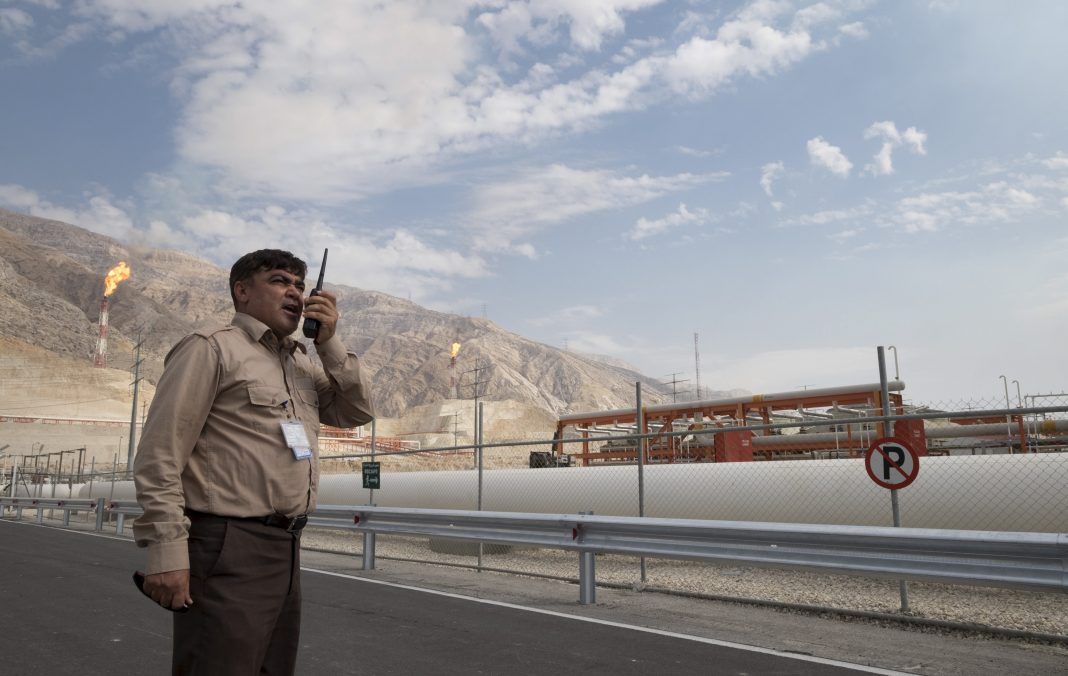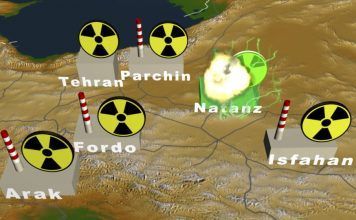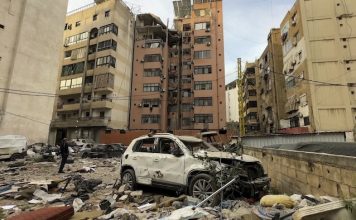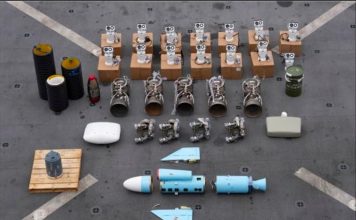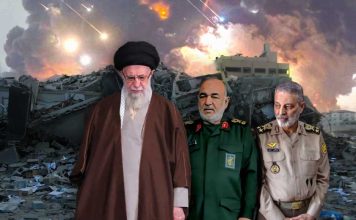For the first time in four decades, workers in the Iranian oil industry are staging nationwide strikes. The strikes started at 19 oil refineries, petrochemical factories, and power plants on Aug. 1. Kayhan Life has exclusively interviewed several of the striking oil workers.
The strikes were triggered by the death of Ebrahim Arabzadeh, a worker at the Mahshahr Petrochemical Complex in the southern province of Khuzestan, who died on July 28 from heat exhaustion while at work.
The governor of Bandar-e Mahshahr Mohsen Biranvand blamed the contractor, the Tehran Jonoob Technical and Construction Company, for failing to provide adequate health and safety measures and first aid facilities at the workplace. “Officials from the province’s health department had previously filed a formal complaint against Tehran Jonoob for not having proper health, treatment and first aid facilities on site,” Mr. Biranvand told the semi-official Fars news agency on July 28. “Tehran Jonoob’s management ignored the issue altogether.”
A coworker of Ebrahim Arabzadeh told Kayhan Life: “I was off on that day, but heard from others that Ebrahim had fainted. The company does not have an infirmary or a treatment center or a first-aid facility on-site to help workers in an emergency. Other workers had done what they could to save his life. However, he had already died by the time the ambulance arrived.”
“Ebrahim was only 35 years old,” the worker noted. “He was young and healthy. But we work under tough conditions. We work from 06:30 am until 06:30 pm in the blazing sun. Many of us work on Fridays without getting paid overtime. Everyone here could end up like Ebrahim.”
“Ebrahim was the fifth worker to die in the past four years,” the worker added. “The Mahshahr projects have claimed several lives. The governor has blamed the contractor. Doesn’t the contractor work for the Oil Ministry? Shouldn’t the government have oversight of projects implemented and managed by contractors?”
The worker explained that fear of not having a job or money forces many people to work under horrible conditions. He added that a lack of state supervision allowed contractors and businesses to exploit workers.
The oil and gas installations concerned by the strike action include Qeshm Heavy Oil Refinery (in the southern province of Hormozgan), Azar Oil Field (in the western province of Ilam), the Isfahan Oil Refinery Company (in the central province of Isfahan), the South Pars Oil and Gas Refinery’s phases 14, 22 and 24, and the North Dome Gas Condensate Field (both in the Persian Gulf), Abadan Refinery and Jafir Oil Processing Unit (both in the southern province of Khuzestan), the Lamerd Petrochemical Complex, the Kangan Petro Refining Company, the Sabalan Petrochemical Company, and the Pars Phenol Petrochemical Company (all four in the southern province of Bushehr).
The power plants whose workers have joined the strike included Tabriz Combined Cycle Power Plant (in the northwestern province of East Azerbaijan), Shirvan Combined Cycle Power Plant (in the northeastern province of North Khorasan), Roudshour Combined Cycle Power Plant (in the central province of Markazi) and South Pars Central Combined Cycle Power Plant and Centralized South Pars Combined Cycle Power Plant (both in Bushehr).
Oil workers have been complaining about unfair wages for some time now. However, their pleas have been ignored by the Iranian Oil Ministry and contractors who hire them.
[aesop_image img=”https://kayhanlife.com/wp-content/uploads/2020/08/etesab.jpg” panorama=”off” credit=”Kayhan London” align=”center” lightbox=”on” captionsrc=”custom” captionposition=”left” revealfx=”off” overlay_revealfx=”off”]
The Asaluyeh Complex manages the offshore South Pars Gas and Oil Project in the Persian Gulf. With nearly 1,800 trillion cubic feet of reserves, South Pars is the world’s biggest gas field. The project comprises 28 phases, each requiring a large workforce.
A worker at the Asaluyeh Complex lost his life from heat exhaustion a few days before Arabzadeh’s death. According to Khashayar Vatankhah, the administrator of Nabi Akram Asaluyeh Hospital, the man died on the way to the hospital.
Workers at the Asaluyeh Complex put in 12-hour shifts.
A worker at the Asaluyeh Complex told Kayhan Life: “The Oil Ministry works with several contractors who manage various projects. Most of these companies offer similar wages and terms to their workers. We work 12-hour shifts and do not get overtime. We get six days off after working for 24 consecutive days. Most workers live in other cities, so they prefer the six-days-off scheme, which enables them to go home.”
[aesop_image img=”https://kayhanlife.com/wp-content/uploads/2018/06/2015-11-19T120000Z_268290915_GF20000066321_RTRMADP_3_IRAN-OIL.jpg” panorama=”off” credit=”FILE PHOTO: A general view shows a unit of South Pars Gas field in Asalouyeh Seaport, north of Persian Gulf, Iran. REUTERS” align=”center” lightbox=”on” captionsrc=”custom” captionposition=”left” revealfx=”off” overlay_revealfx=”off”]
“There are first aid facilities at some worksites in Asaluyeh,” the worker explained. “There is even a doctor on site. The conditions are very harsh in the first six months of the year [Iranian year starting March 21], especially during the summer. A worker may die from heatstroke.”
“Temperatures can reach 50 degrees Celsius on some hot summer days, creating tough conditions for a welder working on a metal scaffolding. Many of them faint,” the worker noted. “Workers have been complaining about work conditions at the Asaluyeh Complex for a long time. Our union representatives even went to Tehran to raise the issue with the officials at the Oil Ministry. The Oil Minister [Bijan Namdar Zanganeh] and other senior officials did not meet with them.”
“After Nowruz [the Iranian New Year], workers on various sites at the Asaluyeh Complex were planning to strike over low wages and unsafe conditions caused by the coronavirus pandemic,” the worker said. “However, the Ministry of Intelligence summoned and threatened some strike organizers.”
“But we were fed up after the death of our fellow workers in Mahshahr, and went on strike anyway,” the worker added.
“According to the country’s labor laws, we should be paid overtime for working beyond seven and a half hours,” the worker noted. “Those of us who work on projects outside a city limit are entitled to a paid vacation. The law says that a company should shut down operations if temperatures exceed 40 degrees Celsius. However, we regularly work in temperatures as high as 52 degrees Celsius.”
Although the strikes started in the country’s south, workers at petrochemical companies and power plants in Isfahan, East Azerbaijan, and Khorasan have joined the industrial action, demanding better pay and safer work environment.
A worker at a petrochemical company in Isfahan told Kayhan Life: “We are in the same situation as the workers in the south. We all have financial problems. Although the weather is better here [Isfahan] than Khuzestan and Bushehr, we all struggle with low wages and poor work conditions.”
“I have two children. One is 10 and the other 14,” the worker said. “My youngest has asthma and is also on a special diet. Our insurance does not cover the cost of his medications. His medical bills and other expenses come to around $95 a month. We pay nearly $237 a month in rent. Our monthly rent was $142 last year. The landlord gave me the option of paying this year’s rent in one lump sum of $3,600 or add $95 to the monthly rent. I could not afford to pay the lump sum, so I have been paying a higher monthly rent.”
“After paying all the monthly expenses, I have $237 left over from my wages. I spend $45 on gas and transportation and another $35 on bills, leaving us with only $157. I cannot feed and support a family of four on that,” the worker added. “That is why we have gone on strike, given that no one listens to our grievances or helps us.”
This article was translated and adapted from Persian by Fardine Hamidi.

